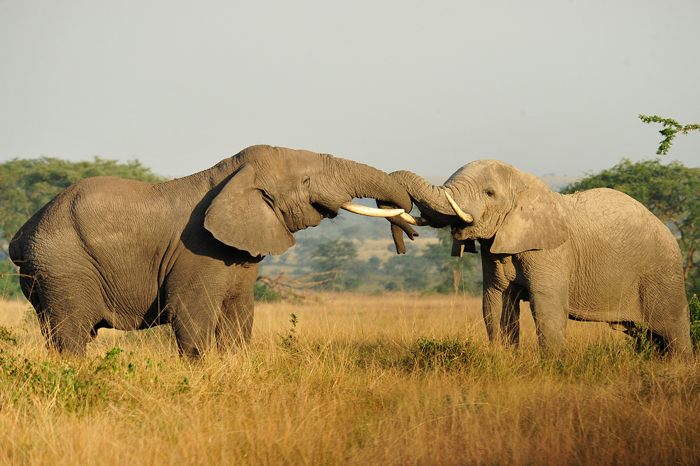All Ears: Elephants Can Identify Human Languages

Get the world’s most fascinating discoveries delivered straight to your inbox.
You are now subscribed
Your newsletter sign-up was successful
Want to add more newsletters?

Delivered Daily
Daily Newsletter
Sign up for the latest discoveries, groundbreaking research and fascinating breakthroughs that impact you and the wider world direct to your inbox.

Once a week
Life's Little Mysteries
Feed your curiosity with an exclusive mystery every week, solved with science and delivered direct to your inbox before it's seen anywhere else.

Once a week
How It Works
Sign up to our free science & technology newsletter for your weekly fix of fascinating articles, quick quizzes, amazing images, and more

Delivered daily
Space.com Newsletter
Breaking space news, the latest updates on rocket launches, skywatching events and more!

Once a month
Watch This Space
Sign up to our monthly entertainment newsletter to keep up with all our coverage of the latest sci-fi and space movies, tv shows, games and books.

Once a week
Night Sky This Week
Discover this week's must-see night sky events, moon phases, and stunning astrophotos. Sign up for our skywatching newsletter and explore the universe with us!
Join the club
Get full access to premium articles, exclusive features and a growing list of member rewards.
An elephant never forgets — especially when it hears the sound of an approaching predator.
But scientists never understood exactly how finely tuned elephants' hearing is, until researchers tried to see if the pachyderms could distinguish among the sounds made by different groups of humans.
It turns out that elephants — widely known as highly intelligent mammals — can identify different sexes, ages and even different ethnicities in human voices, a remarkable talent that underscores the animals' sensitivity to social cues. [Elephant Images: The Biggest Beasts on Land]
To reveal just how acute the listening ability of elephants is, researchers recorded the voices of men, women and children from two different African ethnic groups: the Maasai, cattle herders who frequently come into conflict with elephants, and the Kamba, farmers who rarely encounter elephants on that people's cultivated lands.
The groups were recorded speaking the same words: "Look, look over there: A group of elephants is coming."
The researchers then played the different recordings for families of African elephants (Loxodonta africana) from a speaker that was hidden behind palm fronds. Researchers chose the elephants from the many family groups that wander in and around Amboseli National Park in Kenya.
The results, published this week in the Proceedings of the National Academy of Sciences (PNAS), showed that elephants largely ignored the sounds of women or children from the Maasai. The animals also failed to react much to the sounds of the Kamba men.
Get the world’s most fascinating discoveries delivered straight to your inbox.
But upon hearing the sounds of Maasai men, who do most of the hunting in that society, the elephants immediately displayed defensive behaviors. They quickly formed a huddle, protecting their calves and raising their trunks to sniff the air for any perceived threats.
"The ability to distinguish between Maasai and Kamba men delivering the same phrase in their own language suggests that elephants can discriminate between different languages," Graeme Shannon, co-author of the study, told Discovery.
That doesn't mean elephants understand human words, but rather that they can distinguish among different languages, perhaps based on each tongue's vocal patterns, inflections and other auditory cues.
Another recent study, published in the journal PLoS One, found that elephants warn others of approaching danger by producing low "rumbling" sounds that are specific to the threat.
For instance, the sound of a swarm of angry bees (which can inflict painful stings on elephants' eyes and trunks) elicited rumblings of a particular frequency from the elephants. The sound of tribesmen, however, caused elephants to produce rumblings of a different frequency.
In an accompanying article in PNAS, Frans van der Waal, the author of several books on animal behavior, wrote, "The more we understand about how elephants navigate their physical and social worlds, and how their behavior continues to adapt to ever-changing threats, the better able we will be to effectively work to protect them in the wild."
Follow Marc Lallanilla on Twitter and Google+. Follow us @livescience, Facebook & Google+. Original article on Live Science.

 Live Science Plus
Live Science Plus










